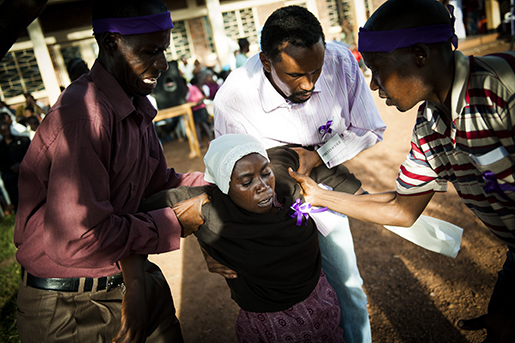Memory and justice
Rwanda year zero

© Vincent Boisot
Ten years after the end of the genocide, "traumatic crises" appear among survivors during the commemorations of the genocide. Naasson Munyandamutsa, a Rwandan psychiatrist who participated in the reconstruction of mental health institutions in Rwanda, explains this particular phenomenon: “People go into syncope and lose consciousness for a long time, some scream, others reproach, others remain silent. When one is in a society that has imposed silence through death and terror, people are not ready to speak. There is no audience. We are afraid of contaminating the other. The time of commemorations is one in which the whole society, officially and politically, gives a platform to memory. People then speak through suffering. Hence these traumatic crises, which are calls for help.”